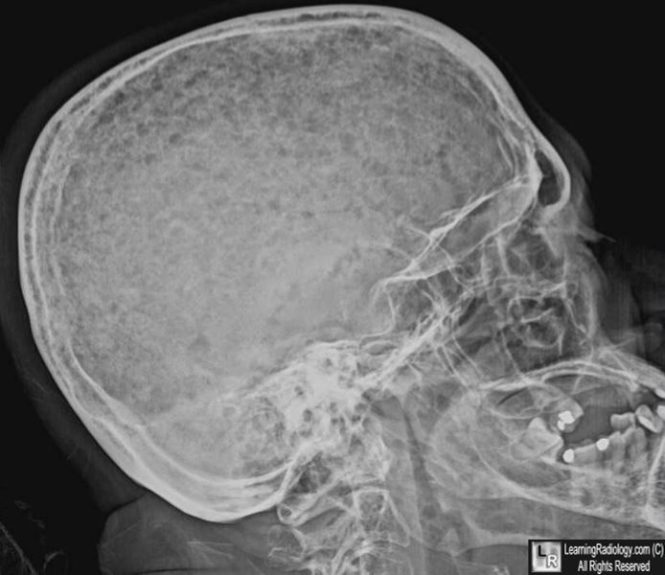Category: Internal Medicine
-

Book Review: Board Basics 3
Despite some important limitations, this is probably one of the best internal medicine review books in existence. The book is loaded with essential and hard-to-find charts, lists, tips and Board review questions. For example, on page 289 there is a table devoted to the mimics of idiopathic pulmonary fibrosis (IPF). The table provides essential clinical…
-
Hypocomplementemia: Key Points and Mnemonics
You don’t need to memorize which glomerulonephritides are associate with low complement and which are not. Rather, ask yourself one question: does this patient have persistent, aggressive, endovascular, systemic infectious or inflammatory processes? If the answer is “yes,” then the disease is associate with low complement levels. If the answer is “no,” then complement level…
-

Laboratory Findings in Multiple Myeloma
Multiple myeloma is associated with more laboratory abnormalities than any other disease. Some of the notable ones are: Blood Peripheral blood smear: normocytic, normochromic anemia, macrocytic anemia, rouleaux formation, neutropenia, thrombocytopenia, abnormal plasma cells (15%) High Erythrocyte Sedimentation Rate (ESR) High serum total protein and low albumin/globulin ratio Septicemia: especially from encapsulated organisms, which are…
-

Book Review: Antibiotic Basics for Clinicians, 2e
I believe that it is not possible to practice general medicine intelligently without knowing the contents of this book very well. This is the only monograph about antibiotics that I know of which focuses heavily, and sometimes exclusively, on the why of antibiotic selection. And when it comes to antibiotic selection, you need to know why you are…
-
How to Use LDH in Clinical Decision-Making
Introduction Lactate dehydrogenase, or LDH, is a marker of cell breakdown almost anywhere in the body, most notably red blood cells, liver, lungs, heart, brain, and kidneys. Thus, a negative LDH is an extremely useful test result because it tells you that all sorts of things are not going on with your patient. An elevated LDH is also a useful and…
-

Disseminated Intravascular Coagulation (DIC)
Introduction Disseminated Intravascular Coagulation (DIC) is a very serious and life-threatining coagulation cascade disorder that is sometimes seen in patients with severe physiologic stressors such as sepsis, obstetric complications (for example, placental abruption, retained products of conception, or amniotic fluid embolization) or major tissue injury from trauma, burns, shock, snake bites, or malignancy (for example, acute promyelocytic leukemia).…
